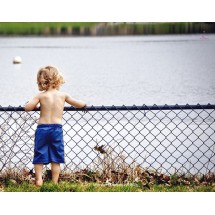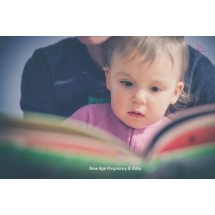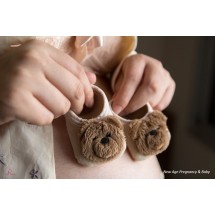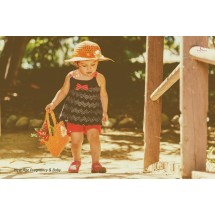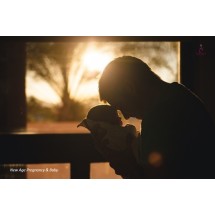Most of us associate the term “potty training” with toddlers, p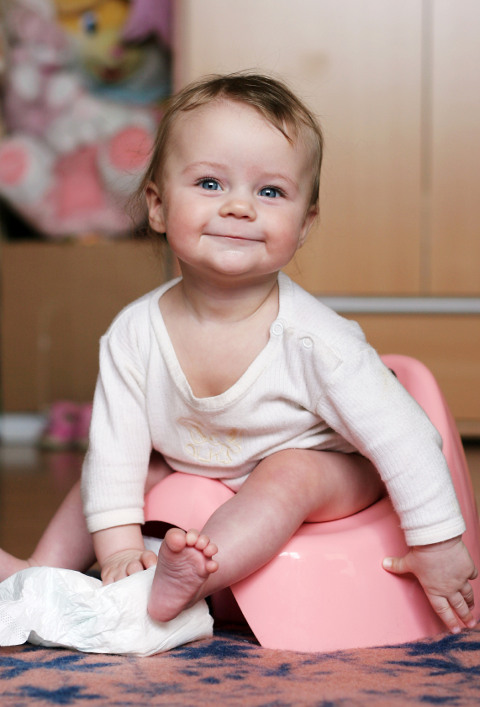 ull-up pants, training pants, “big boy” or “big girl” underwear, and, well, potties. But did you know that babies as young as a few months old can be toilet trained?
ull-up pants, training pants, “big boy” or “big girl” underwear, and, well, potties. But did you know that babies as young as a few months old can be toilet trained?
Elimination communication (EC) refers to the practice of introducing baby to the toilet or potty from infancy – the ideal time frame being between 0-4 months. Based on general regularity observed, visible or audible signals or cues, and intuition, parents learn to recognize and respond to baby’s need to eliminate waste, and brings them to an appropriate place to do so (eg. toilet or potty). Diapers are sometimes used as a back-up in case of too many accidents. By 18 months, most EC-trained children will have been successfully toilet trained
EC focuses on attuning you, the caregiver, to your baby’s innate rhythms, needs and muscle control. You’ll need to constantly watch your baby for signs of being ready to eliminate. This serves to improve the parent-child connection and bonding right from the start. However, a lot of time and energy is needed for you to watch baby for hours at a stretch to recognize his cues, especially during earlier months. This is especially tough for working parents who have to hand baby over to another caregiver or daycare facility, both of which may not be in favour of this approach.
Many times, babies cry or fuss when they’re soiled or have diaper rash from heat or abrasion. Going diaper-less minimizes these discomforts and reduces diaper waste, which makes EC an eco-friendly approach to consider! That said, be prepared for many accidents along the way, and don’t expect baby to be trained overnight. As with all new skills, it will take time and a truckload of patience before you reach your goal.
It does get easier, EC advocates say. After a while, that awareness of your baby’s bodily needs just becomes part of your general routine. And baby, too, may learn to control his bladder earlier on, and gains personal independence as he develops – now able to crawl or walk to the potty on his own.
Irene, mum of Kayla (14 months) shares: “My mother-in-law trained my daughter from the confinement period! After a milk feed, when Kayla usually poo-ed, I would bring out a small potty and hold her in a sitting position with the potty underneath. Then I would make the ng-ng sound to signal bowel movement followed by sh-sh sound to signal urination. I would normally try this for about a minute and check for poo n pee. After some time, Kayla for the idea that when she sees potty it’s time to poo or pee.”
Do note that some babies are not physically ready for EC. Experts say that most babies are unable to control their bladder or bowels until at least 12 months of age, and can’t indicate their needs until about 18 months. Toilet training is more likely to be a positive experience for both parent and child if it’s done only when your child is developmentally ready.
If you’d like to give diaperless EC a go, try these steps below:
• Observe your baby to recognize and predict his elimination patterns.
• When your baby makes one of his typical elimination signs, hold him gently over a toilet, a potty, or even an open diaper.
• When he’s on the potty, make noises that your baby will learn to associate with elimination (many parents use shhh for pee and ng ng for poo). Repeat this sound or phrase whenever you see that your baby wants to go, and also while he’s on the potty. Over times, he’ll learn to recognize this signal and connect his own bodily impulses with the act of using the potty or going to the toilet
• When an accident happens, remain calm and practical. This helps your child stay relaxed as well.
• Make a flexible plan. Don’t make it too hard for yourself. It’s perfectly fine to use diapers for naps, at night, or times when you’re out. it’s fine to use diapers sometimes (at night, or when you’re out, for instance) if it makes life easier. Avoid pressuring your child to stick to your schedule/plan – stay gentle and positive, remembering your aim is to help your child see potty time as a good experience.
For more info, go to http://www.diaperfreebaby.org
By Dorothea Chow


